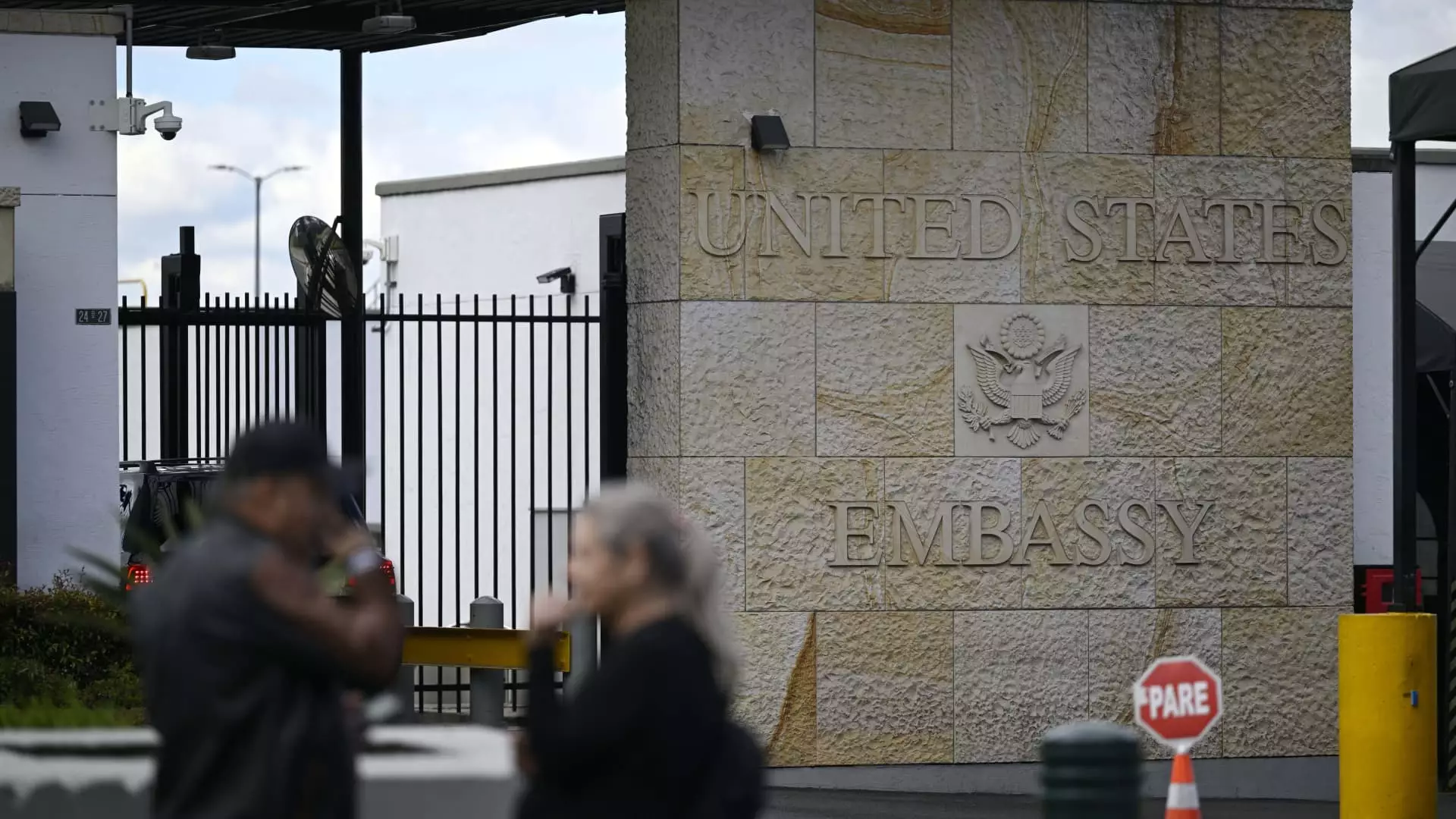In an ambitious move to realign the U.S. diplomatic framework, the Trump administration initiated significant staff reductions at embassies worldwide. This strategic shift appears to be a fundamental part of the president’s broader objective to reshape not only the structure but also the ethos of American foreign policy and diplomacy. Such drastic measures raise questions about long-term implications for U.S. relations abroad, the functionality of its diplomatic missions, and the morale of those who serve within it.
Reports emerged that U.S. embassies were directed to plan for a workforce reduction of 10% for both American diplomats and local staff. This directive aligns with Trump’s vision for an “America First” foreign policy but poses significant risks to the efficacy of U.S. diplomacy. The embassies, which engage in essential tasks ranging from trade negotiations to humanitarian assistance, may find their capabilities diminished. The expectation for a comprehensive list to be submitted to the State Department by a tight deadline indicates a rushed approach that lacks transparency and strategic foresight.
The motivation behind these cuts is multifaceted, extending from an apparent desire to streamline operations to a broader ideological battle against what Trump refers to as the “deep state.” Such terms have been used to characterize perceived bureaucratic institutions that the administration believes obstruct the implementation of its policies. However, diminishing staff in critical roles could lead to unintentional diplomatic isolation for the U.S. on the global stage.
The significant overhaul of the diplomatic corps reportedly includes personnel changes that might fundamentally alter the State Department’s operations. Trump’s executive order that tailors the foreign service to better reflect his administration’s foreign policy goals emphasizes a lack of tolerance for those deemed ‘disloyal.’ Such directives create a chilling environment where the focus may shift from effective diplomacy to political allegiance.
This framing not only undermines the independence that diplomats have historically relied upon but also erodes the diverse perspectives essential to navigate complex international issues. The prospect of professional discipline based on political fidelity can precipitate a culture of fear and conformity, ultimately stifling innovation and effective policymaking within diplomatic ranks.
Alongside these personnel shifts, reductions in contracting at various State Department divisions signal a retreat from traditional diplomatic and humanitarian engagements. Reports indicate a notable termination of staff within the Bureau of Democracy, Human Rights, and Labor, further indicating a withdrawal from advocacy on key global issues. This trend aligns with broader cutbacks in U.S. foreign aid that could diminish America’s role as a global humanitarian leader.
From a United States Agency for International Development (USAID) perspective, the policies implemented under Trump’s directive to freeze foreign aid amplify concerns over how these changes might adversely affect development projects and humanitarian relief efforts worldwide. The collaborations that have historically defined U.S. partnerships with foreign governments and non-profits may face substantial disruption, jeopardizing years of progress in various sectors.
In evaluating the long-term implications of Trump’s initiatives on U.S. embassies, it becomes evident that a cautious approach is necessary. While the desire for efficient government operations is commendable, the associated risks threaten the very foundations of American diplomacy. Cutting staff indiscriminately without a strategic framework could lead to a weakened diplomatic presence abroad. It prompts the question of whether efficiency can indeed enhance effectiveness in a field where human capital and relationship-building remain paramount.
As the Trump administration seeks to navigate the complexities of modern diplomacy through personnel cuts, the potential repercussions call for a reevaluation of the methodology. Sustaining robust diplomatic operations requires more than mere reductions; it demands a commitment to strategic investment in human capital that is essential for addressing the modern challenges facing today’s interconnected world. Without such an investment, the U.S. risks relegating itself to a position of diminished influence, failing to uphold its historic role as a global leader in diplomacy and international cooperation.

